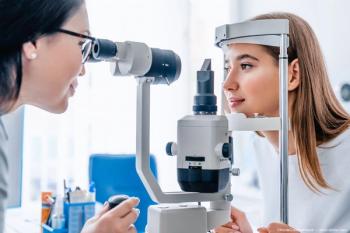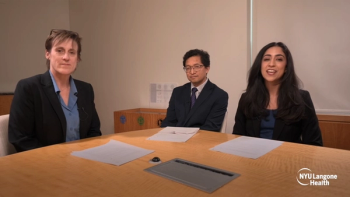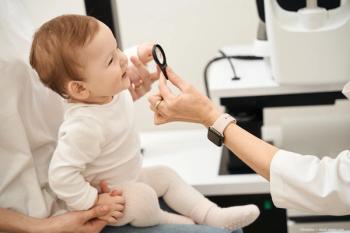
Ocuphire completes enrollment in MIRA-4 pediatric safety trial for mydriasis treatment option
With a growing rate of childhood myopia, the company's MIRA-4 trial supports a broader RM label for Nyxol in pediatric patients from 3 to 11 years of age.
Ocuphire Pharma Inc. today announced that it has completed enrollment in the MIRA-4 (NCT05223478) trial evaluating the safety and efficacy of Nyxol eye drops to reverse pharmacologically-induced mydriasis (RM) in 23 pediatric subjects.
According to the company, it worked closely with Oculos Development Services and the 2 U.S. investigational sites to accomplish this milestone in 2 months.
The company noted in a news release that MIRA-4 is part of a comprehensive MIRA clinical program to develop Nyxol for RM and as agreed with FDA under the Pediatric Research Equity Act. This includes the evaluation in pediatric patients as young as 3 to 11 years old in order to include Nyxol use for this pediatric population. In February, Ocuphire announced completion of enrollment in the MIRA-3 Phase 3 clinical trial investigating Nyxol for RM in adults 18 and older and children of ages 12-17 years.
If successful, the company anticipates submission of a New Drug Application (NDA) to the U.S. Food and Drug Administration (FDA) for Nyxol for RM in late 2022. With no current commercially available therapies, Nyxol has the potential to address an estimated $500 million reversal of dilation market including pediatric and adult populations where adrenergic (phenylephrine) and parasympatholytic (tropicamide, cyclopentolate, etc.) agents are commonly used for dilating eyes. These classes of dilating drops were studied in the MIRA program.
“Due to the myopia epidemic which is expected to affect 50% of world’s populations by 2050, we expect an increase in refractions and dilations in children, especially in Asia where high myopia is so prevalent,” Jay Pepose, MD, PhD, medical advisor, Ocuphire Pharma, said in a statement. “The effects of dilations can impact multiple stakeholders including children, their parents and even teachers, facilitating the child’s return to school, sports and homework. Nyxol may allow parents and physicians to explore a new treatment option to reverse mydriasis.”
Mina Sooch, MBA, CEO and dounder, Ocuphire Pharma, pointed out that the company is building momentum in the first months of 2022 as it reports rapid enrollment and completion in three of its late stage trials for Nyxol.
“If MIRA-4 meets its endpoints, the results would potentially support a broader label for Nyxol in RM to include children as young as age 3,” Sooch said in a statement. “MIRA-3 and MIRA-4 will build upon positive results in the MIRA program and complete the clinical data package for our planned NDA submission to FDA later this year. We expect top-line results from MIRA-3 RM Phase 3 study by end of 1Q22, followed by the LYNX-1 NVD Phase 3 study and MIRA-4 RM pediatric study in 2Q22.”
MIRA 4 Study Design
MIRA-4 is a multi-center, randomly assigned, parallel-arm, double-masked, placebo-controlled study targeting 20 randomized pediatric subjects (10 in ages 3 to 5, and 10 in ages 6 to 11) evaluating the safety and efficacy of Nyxol in pharmacologically-induced mydriasis with three dilating agents (phenylephrine, tropicamide, and Paremyd). The primary endpoint is safety with descriptive statistics for secondary efficacy endpoints.
Newsletter
Don’t miss out—get Ophthalmology Times updates on the latest clinical advancements and expert interviews, straight to your inbox.





























